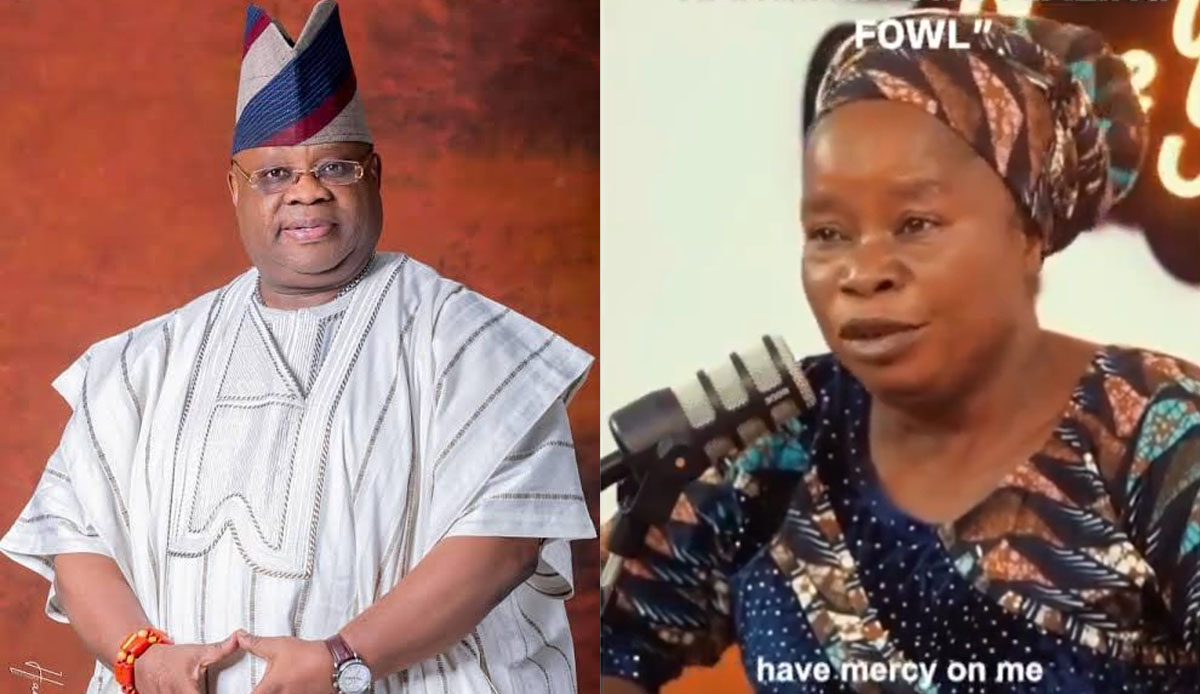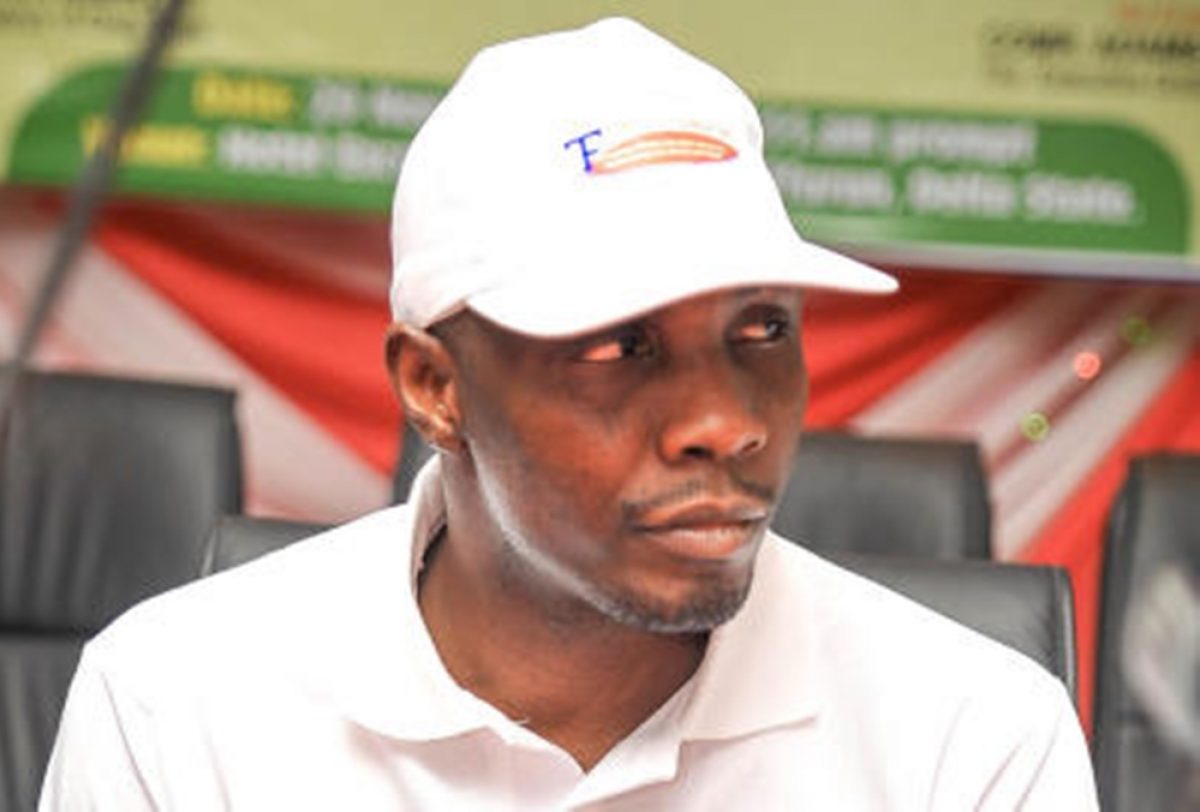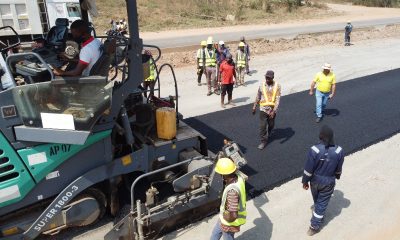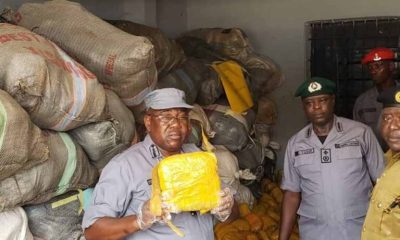metro
Ogun bans trucks from flyovers after tanker explosion

No tanker or articulated vehicle will henceforth be allowed to use flyover bridges in the Ogun State, Governor Dapo Abiodun has said.
The governor, who visited the scene of a Tuesday tanker explosion on Kuto flyover bridge, Abeokuta that claimed three lives, gave the order.
Abiodun described the incident as sad and unfortunate, adding that the ban was meant to safeguard lives and property of citizens in view of explosions in different part of the state.
Abiodun expressed concern that the bridges constructed to solve problems were now creating new problems.
He said stiffer punishment would be meted out to tanker driver, found to flout the order.
He said the state would soon roll out measures to check the road worthiness of vehicles, especially tankers and articulated vehicles plying roads in the state.
The governor confirmed that three persons died in Tuesday’s explosion, while six others sustained varying degrees of injury.
He said the injured victims had been taken to the Federal Medical Centre, Idi-Aba, and the State Hospital, Ijaye, Abeokuta.
The governor said, “The record that we have as of now is that we have three casualties; we have another six persons, who sustained varying degrees of burns. Three of them are at the Federal Medical Centre and the other three are at the State Hospital, Ijaye, receiving urgent medical attention.
“We have gone a step further by inviting burns specialist from Lagos to come and attend to those who have about 80 to 90 per cent burns, who require special attention, and have since arrived in Abeokuta. They will make explanation if there will be a need to transfer them to the burns centre in Lagos.”
A survivor, Taiwo Ososanya, who escaped from one the vehicles trapped by the fire, said the tanker driver gave a sign of brake failure, while descending the bridge.
Taiwo, an official of the state Ministry of Housing, said the driver, in a bid to avoid greater calamity, swerved and crashed into the side of the road.
metro
Osun man on death row for fowl theft shares how police subjected 17-year-old self to torture

Osun man on death row for fowl theft shares how police subjected 17-year-old self to torture
Segun Olowookere, a man who was sentenced to death for stealing fowls in Osun State when he was 17, has recounted how the police tortured and gave him a cutlass used as an exhibit against him as a minor in court.
FIJ had earlier reported that Governor Ademola Adeleke planned to pardon Olowookere after news of how Justice Sakariya Oyejide Falola sentenced Olowookere and Morakinyo Sunday to death in 2014 broke out.
Olowookere was charged in court with conspiracy, armed robbery and stealing. It was on these grounds that Falola delivered his judgment.
Olowookere and Sunday spent some days at a police station in Okuku before their arraignment and conviction. Olowookere said that the police gave them one cutlass each while at the station for weeding the premises.
However, the two of them were later transferred to Osogbo, the state capital, with the cutlasses. These cutlasses were later presented before the judge as exhibits of an armed robbery offence, Olowookere told The Punch in an interview on Sunday.
HOW HE WAS ARRESTED
Now in a custodial centre working with a medical team, Olowookere said he gave himself up for the arrest in November 2010.
“I was at my father’s shop in Oyan after returning from school. My dad and I were discussing my university admission and suddenly, we heard gunshots, and everybody ran away except my dad and a few others,” he narrated.
“My father was taken to a police van where there were some children. I was peeping out and could hear and see what was going on. The police asked my dad where I was and he asked them what my offence was. When they couldn’t give him a satisfactory response, my father shouted at the top of his voice that I should run away because the police wanted to arrest me.
READ ALSO:
- Why we displayed ‘Jesus Christ is not God’ banner at Lekki mosque -Imam
- Lagos-Calabar coastal road: Train track work begins 2025, says minister
- Three days to Christmas, food prices, transport fares hit the roof
“But I was wondering what my offence was. So, I came out and went to meet them. I was detained at the police post in Oyan and was taken to Okuku Divisional Police Headquarters the following day. I met the children who were in the police van when they came for me sitting on the ground and eating rice.”
THEY WERE GIVEN CUTLASSES
Olowookere recalled that the divisional police officer (DPO) heading the station at the time accused him of being a leader of an armed robbery gang consisting of teenage children.
Some days after his arrest, his parents were still making efforts to secure his bail. While this was ongoing, the police engaged them in labour, giving them a cutlass each to cut the grasses at the station.
“The DPO told me that one of the children confessed to stealing two broilers and some crates of eggs. I met the broilers and the eggs at the station,” he said.
“The children were eight in number. He told me the children said I was their gang leader, which I denied. The children he was talking about were around 12 and 13 years old, while I was 17 then. I told him I knew the children but I didn’t have anything to do with them other than greeting them in the community.
“I met Sunday Morakinyo at the station, and he told the police that he didn’t know me nor had anything to do with me. I don’t even know where he was arrested. All the children were released but Morakinyo and I were not.
“We were seriously tortured from the first day I got to the Okuku Police Station under the supervision of the DPO. The children who allegedly committed the crime were not beaten. He repeatedly asked me to admit and confess to a crime I didn’t commit.
READ ALSO:
- Three Ogun varsity students die auto crash
- Dangote, MRS agree to sell petrol at N935/litre nationwide
- How another Nigerian allegedly murdered by four South Africans
“After some days, we were given cutlasses to cut the grass at the police station premises despite having injuries on every part of our body as a result of the torture.”
BAIL SUM BEYOND HIS PARENTS
Olowookere’s father was asked to produce N30,000 for his bail, but his father could only raise N20,000, and the police would not cut down this financial bail demand.
His father then left the station, perhaps to gather the shortfall of N10,000. Before his father could return, the police had ferried them to Osogbo.
“My father could only raise N20,000 out of the N30,000 they demanded. The police rejected it and insisted on the N30,000,” Olowookere said.
“My dad left the station to look for the money. But before he returned the following day, we had been moved to the SARS office in Osogbo. The cutlasses that were given to me and Morakinyo to cut the grass were presented to SARS as exhibits and they were told we were armed robbers.
“After 17 days in the SARS cell, we were taken to a magistrate court and charged with robbery, and from there to the High Court, where we were sentenced to death.”
The poultry farm from which they were alleged to have stolen fowls belonged to one of his uncles.
Despite initially promising not to pursue the case against him, the uncle went on to testify in court against him.
“We are from the same Ajerotutu Compound in Oyan. He was summoned to a family meeting where he said I was not among those who stole the fowls, but my name was mentioned by the children who were arrested,” Olowookere explained.
“He told the family that he would discontinue the case. But he later came to court to testify against me.
“I never wrote any statement to the police. My parents never had a flat, not to mention a six-bedroom flat. I lived with my parents until I was arrested.”
READ ALSO:
- Copyright: Court orders Adele’s song removed from platforms
- Ibadan, Abuja, Anambra stampedes: IG orders probe, threatens prosecution of organisers
- Gabriel Jesus shines as Arsenal thrash Palace 5-1 in London derby
Asked why his lawyer didn’t object to the statement during the trial, Olowookere said, “I didn’t know anything, but I am sure I didn’t write any statement.”
SUNDAY SUFFERS MENTAL ILLNESS
As a result of the torture they received at the police station before arraignment, Sunday began to bleed from several parts of his body.
Eventually, this bleeding led to his becoming mentally ill, according to Olowookere.
“He is now a mad person. He is at Ibara Prison. He developed mental issues when we were tortured at the police station in Okuku and by the officers of the disbanded Special Anti-Robbery Squad. I am just lucky, and I believe God’s grace is over me,” he said.
“Morakinyo was bleeding from the anus, ears, nose and on the head. The police did not treat him despite that. I cleaned the cell every day because his blood stained the floor. He was bleeding for the entire six days we spent inside the Okuku police cell before we were transferred to the SARS cell in Osogbo.
“We spent 17 days with SARS and Morakinyo bled every day. Some of the SARS officers noticed that he was not mentally normal again but others thought he was pretending, and from there, he developed full mental issues.
“When we were remanded at Ilesa Custodial Centre, the warders tried to manage his mental health but they didn’t have the capacity. His condition then worsened. As I am talking to you, he doesn’t recognise anybody again. His mother has stopped checking up on him.”
Olowookere said he was hopeful that he would regain his freedom someday to pursue his academic studies and become useful to the world.
“I first enrolled in Yewa College of Education, Abeokuta, Ogun State, after my sentence. It is my dream to study medicine, but it is not available at a college of education. I was later transferred to a maximum prison in 2016. But due to financial constraints, I couldn’t study my dream course,” he explained.
“However, I was encouraged to train under the medical practitioners in the prison. So, I applied and I was accepted into the medical line in 2017. Since then, I have been working with the nurses, pharmacists and doctors inside the prison.
“I believe I will be free one day, and when I regain my freedom, I will definitely go for medicine. I pray to God to set me free because I am innocent.
“I don’t know anything about the crime I am convicted for. I pray to God to give me the opportunity to prove my innocence to the world and be useful to society. I am not a criminal; I have never stolen anything in my life, not to talk of robbing somebody.”
Osun man on death row for fowl theft shares how police subjected 17-year-old self to torture
metro
Oil cabal sponsoring blackmails against Tompolo, Otuaro, Kyari, say Ijaw youths

Oil cabal sponsoring blackmails against Tompolo, Otuaro, Kyari, say Ijaw youths
Stakeholders under the Ijaw Youths Network (IYN) have alleged a well-coordinated international blackmail campaign against High Chief Government Ekpemupolo (Tompolo), Chairman of Tantita Security Services; Mele Kyari, Group Chief Executive Officer of the Nigerian National Petroleum Corporation Limited (NNPCL); and Dr. Dennis Otuaro, Chairman of the Presidential Amnesty Programme (PAP).
In a statement issued on Sunday by its President, Frank Ebikabo, and Secretary, Federal Ebiaridor, the IYN accused a cabal of oil thieves of sponsoring the campaign to undermine the successes of Tantita Security Services and other security outfits in combating oil theft.
The group specifically condemned a staged protest outside the United Nations headquarters in New York, describing it as a smear campaign filled with false criminal allegations against Tompolo, Kyari, and Otuaro.
The IYN called on the National Security Adviser, Mallam Nuhu Ribadu, and others entrusted with the nation’s security to ensure a thorough investigation of persons behind the blackmail and bring them to justice in the interest of national security.
The stakeholders also urged President Ahmed Bola Tinubu to be resolute in sustaining the reversal of the evils of oil theft against Nigeria and her citizens.
The IYN stressed that oil thieves and their operatives armed with billions of ill-gotten resources were funding the recurrent attacks on Tompolo, Kyari and Otuaro.
The youths insisted that a virulent cabal of oil thieves with a vast network across international boundaries was on the rampage to orchestrate the campaign targeting the economy of the country and its leadership.
READ ALSO:
- Why we displayed ‘Jesus Christ is not God’ banner at Lekki mosque -Imam
- Lagos-Calabar coastal road: Train track work begins 2025, says minister
- Three days to Christmas, food prices, transport fares hit the roof
The IYN said that the oil thieves were pooling resources together with their international collaborators to undermine the President, national security and the nation’s economy.
The group said that it was not unexpected that the deadly cabal that almost ruined the economy of the country by stealing billions of petro dollars would not give up their lucrative crime without a fight.
The IYN said that the achievement of the Tinubu Administration which had been able to attain 1.8m barrels of crude oil per day, after serious efforts into the battle against oil thieves should be protected from such influential, deadly gang.
The IYN added some of those fighting Tompolo, Kyari and Otuaro were persons, who pressed to be appointed Administrator of the Presidential Amnesty Programme without success.
The Ijaw youths groups said that the antecedents of Otuaro and his capacity to deepen consultations and sustenance of peace in the Niger Delta might be hurting those behind the campaign of calumny in the region.
The group called on all sister organizations in the Niger Delta to support the campaign against oil theft, Tantita Security Service Limited, the NNPCL and the PAP leadership.
READ ALSO:
- Three Ogun varsity students die auto crash
- Dangote, MRS agree to sell petrol at N935/litre nationwide
- How another Nigerian allegedly murdered by four South Africans
The group said: “We are shocked at the extent to which this deadly cabal of oil thieves can go to orchestrate a campaign of calumny against hardworking people carrying out their lawful responsibilities in the Niger Delta.
“Of course, nobody expects a group of extremely wealthy, connected and influential people who has been involved in oil theft, stealing billions for years to go away without resistance.
“The show of shame in front of the UN headquarters is a most reprehensible attack on the country image, the President, national security and our economy.
“The unpatriotic characters are conniving with enemies of Nigeria in their criminal bid to bring back the dark days of oil theft and its impact on the nation’s economy.
“We call on the President, to be firm in sustaining what is good for Nigeria. Tompolo, and Tantita have shown that it is not impossible to stop the menace of oil theft as shown by the daily production of oil to 1.8 million barrels per day,
“We also urge the Mr Kyari and Dr Otuaro to be firm in carrying out their official responsibilities to this great country. That oil thieves are focusing attacks on the, shows in clear terms that their actions are suffocating their evil activities in the region.”
Oil cabal sponsoring blackmails against Tompolo, Otuaro, Kyari, say Ijaw youths
metro
NURTW scribe felicitates Nigerians on Xmas, urges caution

NURTW scribe felicitates Nigerians on Xmas, urges caution
The General Secretary of the National Union of Road Transport Workers (NURTW), Comrade Kayode Agbeyangi, has enjoined Nigerians to imbibe the virtues of peace, love and compassion as taught through the birth of Jesus Christ.
He stated this in his Christmas and end of the year goodwill message to felicitate members of the union and Nigerians in general.
Agbeyangi urged Nigerians to use the festive season to reflect on the values of love, compassion, and sacrifice that Jesus Christ embodied.
“This period is not for merry making alone; we should also spare time to reflect on the birth and life of Jesus Christ.
“His birth teaches humility, love compassion and sacrifice. As Nigerians, we must show love to our fellow county men. We must love our country. As Nigerians, we must be ready to make sacrifices for the nation.”
The NURTW scribe also used the opportunity to appeal to members of the union and other road users to always exercise caution and adhere to all safety protocols while travelling during the festive season.
“As we celebrate, let us not forget the importance of road safety. The roads can be treacherous, especially during the festive season.
“I urge our members and all road users to drive safely, avoid overspending, overtaking at dangerous bends and overloading, and be courteous to other road users,” he stated.
He also advised drivers that all their vehicle papers should be up to date to avoid embarrassment from law enforcement officers on the highways.
Comrade Agbeyangi prayed for a peaceful and joyous celebration, and wished members of the union and Nigerians, a happy prosperous New Year.
-

 Railway1 day ago
Railway1 day agoLagos Rail Mass Transit part of FG free train ride – NRC
-

 metro2 days ago
metro2 days agoCourt stops customs from seizing imported rice in open market
-

 metro7 hours ago
metro7 hours agoWhy we displayed ‘Jesus Christ is not God’ banner at Lekki mosque -Imam
-

 metro3 days ago
metro3 days agoIbadan stampede: Tinubu orders probe as death toll hits 40
-

 metro2 days ago
metro2 days agoIbadan stampede: Ooni reacts after arrest of ex-wife
-

 metro2 days ago
metro2 days agoAfe Babalola: Court grants Dele Farotimi bail, barred from media interviews
-

 metro1 day ago
metro1 day agoNIMC warns against extortion, reaffirms free NIN enrollment
-

 News3 days ago
News3 days agoAdebayo Ogunlesi, 2 other Nigerians make Forbes 50 wealthiest Black Americans list 2024














You must be logged in to post a comment Login